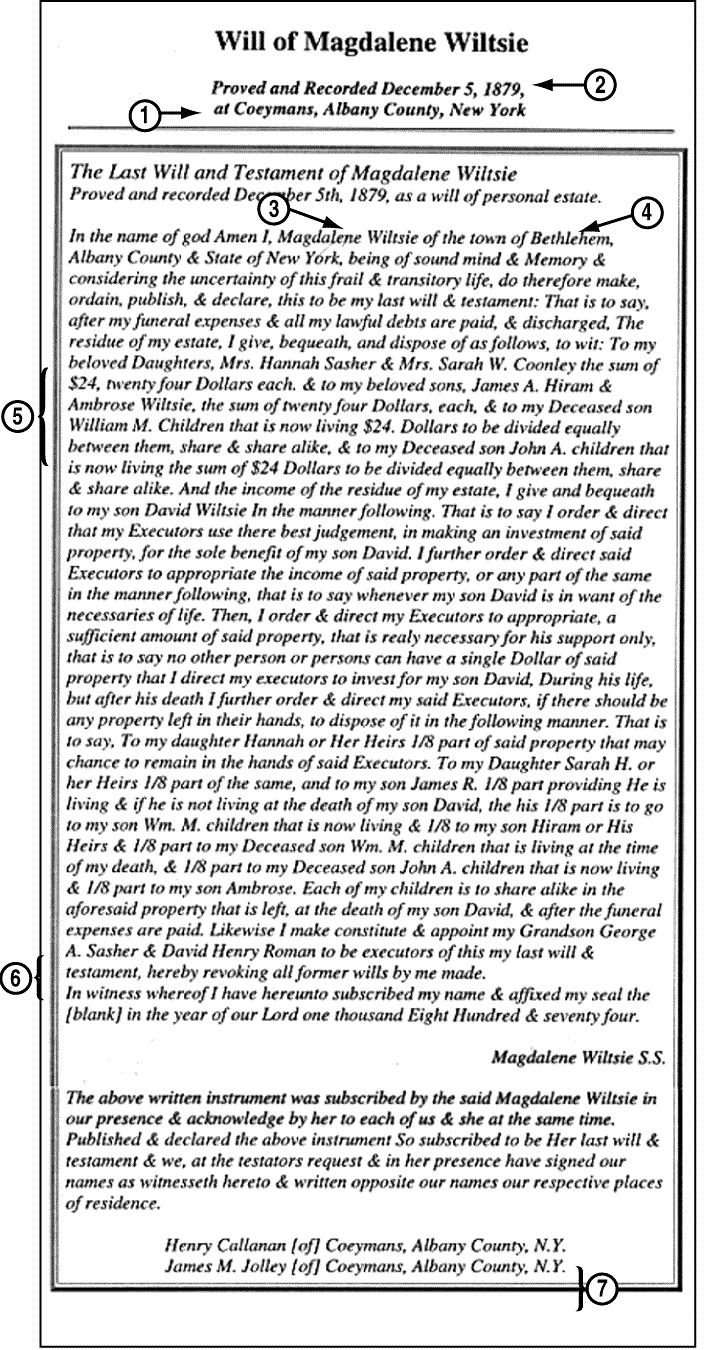
| 1. |
Location
|
| 2. |
Date proved and recorded
|
| 3. |
Name of testator
|
| 4. |
Residence of testator
|
| 5. |
Names of daughters and sons
|
| 6. |
Names of executors
|
| 7. |
Witnesses
|
|
Albany County, New York 
|
